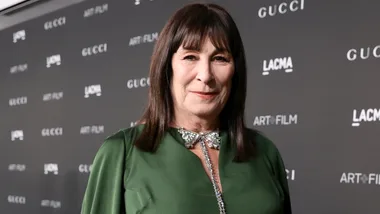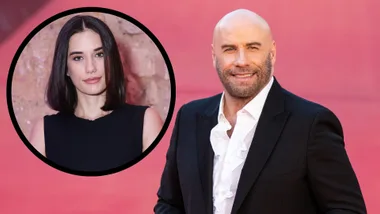Exclusive extract from Social Crimes (Allen and Unwin) written by Jane Stanton Hitchcock.
Murder was never my goal in life. I’m a very sentimental person at heart. I cry in old movies. I love animals and children. I’m a pushover for a beggar in the street. So if anyone had told me five years ago that I could have wilfully and with malice aforethought killed a fellow human being, I would have said they were crazy. But life has surprises in store for all of us, not the least of which is the gradual discovery of who we really are and what we are capable of. However, allow me to dwell for a moment on the last evening of what I think of as my innocence.
It was a perfect Southampton night, warm, clear, starlit, with a gentle breeze blowing in from the ocean. I was standing at the head of a small reception line, greeting guests at a birthday party being held in my honour. I can see my friends and acquaintances now in my mind’s eye, filing past me, bristling with jewels, faces aglow with the hollow confidence that only money can bring.
I was deep in the world oxymoronically known as “New York Society,” where the fish are bigger and the water is colder, or the fish are colder and the water is bigger, depending on your point of view. It was a world I felt entirely at home in. I was Mrs. Lucius Slater – Jo, to my friends – wife of one of the richest and most prominent businessmen in New York.
People described me then as a “socialite,” a label I loathe. It cast me in a lurid and ridiculous light, implying a life of privileged frivolity where everyone flits around from one party to the next wearing calculated clothes and expensive smiles. I would have preferred “social leader,” since the distractions like the gala that night were only part of a more substantial milieu in which I played a significant role: a part of money and power in general, and, more specifically, the governance of the great institutions of New York.
I understood better than anyone that Dick Bromire, my host, was slightly using me to polish up his tarnishing reputation, a gregarious real estate magnate and a figure of note in the cozy older social circles of New York. Dick was facing indictment for income tax evasion – a charge he vehemently denied.
Standing in line next to Dick, I watched him out of the corner of my eye. A beefy man of sixty-five with a moon face and a jaunty manner, he was clad in a white dinner jacket, greeting the arriving guests with a handshake and a slightly automatic grin.
“Good to see ya, good to see ya, thanks for coming, thanks for coming,” he said over and over without pausing to chitchat. Being at the centre of the scandal du jour, he may have been afraid of inviting any probing comments.
His gruffness was, as usual, softened by the charm of Trish, his much younger wife, a sporty blonde from Florida who looked as if she had a mean backhand but whose real idea of an athletic afternoon was cleaning out her closets. She stood next to her husband, showing off her bare, well toned midriff in a sticking outfit of gold lame harem pants and a short matching top. Her heavy emerald and diamond earrings, custom made by Raj, a reclusive Indian jeweller whose unmarked shop in Paris was Mecca for the gem-loving rich, reminded me of military decorations from some defunct Mittel-european monarchy.
My husband, Lucius, and I had known Bromires for years. Lucius and Dick were old golfing buddies. Lucius had helped Dick get into the National years ago. Trish was a member of a reading group – an extension of the late Clara Wilman’s New York reading group – the “Billionaire Reading Group,” as it was facetiously referred to by envious outsiders because all the women in it had rich husbands and because between our discussions of Proust, Trollope, and Flaubert, the stock tips were reputed to fly faster than a convoy of quail.
The Bromires had always been extremely kind to us, but it was when Lucius had his heart attack three months prior to my birthday party that night that they really came through. Dick put his helicopter at our disposal to transport Lucius from Southampton to New York. Dick and Trish had both kept me company – along with my best friends Betty Waterman and June Kahn – in the depressing fluorescent hallways of New York hospital during my long vigil when I though Lucius might die.
“I may not remember, but I never forget” is my motto, and I felt very badly for Dick now that he was a target of a criminal investigation. I was letting him celebrate me (even though several of my friends had warned me to “steer clear,” as they put it) because I liked him, pure and simple.
Since I had no children of my own, my friends are like my family. I stick by them even when it’s inconvenient to do so. This is something I learned as a girl growing up in Oklahoma. “United we stand, divided we’re screwed,” is what my father always said. We may have been unsophisticated back there in the panhandle, but God knows we were loyal.
Trish Bromire visibly preened at the appearance of Miranda Somers, whose presence at a party signifies to our little set that we were in the right place. Miranda Somers, a canny beauty of indeterminate age, is society’s cheerleader. She writes a column for Nous magazine under the pen name “Daisy.” Nous is society’s scrapbook, dedicated to fashion, celebrity, and making social life appear fun, even on those frequent occasions when it’s more tedious than jury duty. Miranda sprinkles stardust plus a soupçon of satire on the events she covers.











